Introduction
About the School
Cantonese is considered the standard dialect of the Yue dialects, which is now mainly spoken in Hong Kong, Macau, Guangzhou and some communities within the Pearl River Delta region and overseas. In Hong Kong, it is used as a usual home language by nearly 90% of the population. Over the past few years, there have been many heated discussions on Cantonese, such as its history, development, status and linguistic structure. For example:
- Does Cantonese have a history of 3000-some years?
- How many tones does Cantonese have, 6 or 9?
- How does the grammar of Cantonese differ from English and Putonghua?
- Where can Cantonese be found outside of the Pearl River Delta Region?
- What can "lazy pronunciations” tell us about the development of Cantonese?
- How does Cantonese interact with other languages and dialects?
- In the era of big data, how can we advance our studies of Cantonese with technology?
- Apart from Tang poetry, where can we find traces of Cantonese in other cultural traditions?
Answers to some of the above questions can be found in the School. In this 5-day event, we bring together renowned scholars from around the world who specialize in various domains pertaining to Cantonese Studies. We aim to offer a platform for these scholars to share with the participants their recent research work and experience on Cantonese studies.
Aims of the School
- to introduce recent developments and knowledge on different domains in Cantonese Studies to the participants;
- to introduce systematic and rigorous methodologies for conducting research on Cantonese;
- to provide a venue for scholarly exchange and interaction between scholars and participants of different backgrounds who are interested in Cantonese Studies.
Program
| Session | Monday | Tuesday | Wednesday | Thursday | Friday |
|---|---|---|---|---|---|
| 27/5 | 28/5 | 29/5 | 30/5 | 31/5 | |
| AM | Welcome & Introduction Studies of Cantonese/History of CantoneseProf Benjamin T'SOU |
Cantonese GrammarProf TANG Sze-Wing | Cantonese WorldsDr Clement TONG | Language ChangeDr KATAOKA Shin | Resources for Cantonese Studies and LearningDr John LEE Dr Andy CHIN |
| PM | Cantonese Sound SystemDr ZHANG Ling | Cantonese Writing and LiteratureDr Don SNOW Dr Fanny LI |
Peripheral Yue Dialects*Prof LIN Huayong Prof KWOK Bit-chee |
Cantonese OperaDr CHEUNG Kwan Hin | Sharing, Conclusion & Certificate Presentation |
*conducted in Putonghua
Speakers
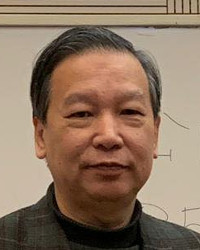
Topic: Cantonese Operas
After his PhD study in Phonetics with University College London, Kwan Hin has been teaching for HK Polytechnic University since 1986, predominantly with its Dept of Chinese & Bilingual Studies and more recently with its self-funded arm CPCE. His work is chiefly in the area of Cantonese linguistics, especially phonology, romanization, lexis and script, and served as Convener for the LSHK Work Group that devised Jyutping 1993. He has been studying Canto-phone singing and Canto-opera, and serving as Canto-opera playwright in the past decade. He was President of LSHK and currently Secretary General of the HK Association of Cantonese Opera Scholars.
Synopsis: Linguistic aspects of Canto-opera
There are two die-hard misconceptions about Canto-opera:
- Canto-opera (often “Cantonese Opera”) is defined as Chinese opera performed in Cantonese.
- The key difference between Canto-operatic singing and Cantopop is that the former is confined to a finite set of old, fixed tunes.
The presentation attempts to clarify such misconceptions. In the course of doing that, a number of interesting linguistic and sociolinguistic aspects of Canto-opera will be introduced, described, explained and discussed, including:
- Varieties of Stage Mandarin
- Tone-melody match
- The influence of Cantonese phonology on Canto-opera
- Code mixing and code switching in Canto-opera
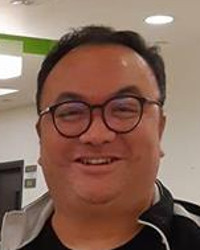
Topic: Online Resources for Cantonese Studies
Andy Chin is now an Associate Professor at the Department of Linguistics and Modern Language Studies, Associate Dean of Faculty of Humanities of The Education University of Hong Kong. He is also the President of The Linguistic Society of Hong Kong (2018 & 2019). His research interests include Cantonese studies, sociolinguistics, discourse analysis and corpus linguistics. In 2009, he won the Best Paper Award at the International Association of Chinese Linguistics. In 2012, Andy constructed A Linguistic Corpus of Mid-20th Century Hong Kong Cantonese (http://corpus.eduhk.hk/hkcc) providing real-time and authentic language data for diachronic studies of Cantonese.
Synopsis: Online Resources for Cantonese Studies
This session aims at introducing to participants methods and resources for processing Cantonese texts. In the first part, we will introduce several Cantonese corpora and examine how the data of these corpora was collected and processed. We will then discuss how these corpora can be used for linguistic research and teaching and learning of Cantonese.
The second part of the session introduces a dependency treebank of Cantonese and discusses its potential in facilitating quantitative analysis on Cantonese as well as contrastive syntactic analysis. Following an overview of the Universal Dependencies framework, we present annotation guidelines for Cantonese and the construction process of the treebank. We then examine two studies based on this treebank, with the first focusing on Cantonese lexical usage, and the second on comparative syntax between Cantonese and Mandarin. Finally, we outline development plans for the treebank and a number of open research questions. The treebank is publicly accessible on the Universal Dependencies website (https://universaldependencies.org).
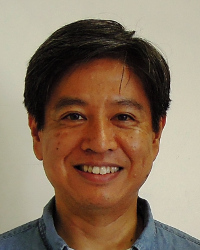
Topic: Early Cantonese Texts and the Linguistic Development of Cantonese
Shin Kataoka received his PhD from The Chinese University of Hong Kong. He is currently an Assistant Professor at the Department of Linguistics and Modern Language Studies, The Education University of Hong Kong. His research interests include diachronic study of Cantonese, history of written Cantonese, cross-cultural communication in China in the late-Qing and pre-Republican era, toponymy of Hong Kong place names, etc.
Synopsis: Early Cantonese texts – What they are and how we can use them
Cantonese is a unique language in that it was one of the most widely documented language by Western missionaries in the late-Qing and early-Republican days in Guangdong and Hong Kong. In this lecture, I will introduce some early Cantonese texts produced in the 19th century, examine the authors and reasons for such publication, and then demonstrate how we can utilize them to investigate the linguistic features of Cantonese spoken in the 19th century with the following three main questions in mind:
- How did Cantonese sound like in the 19th century and what changes did it undergo?
- What were the frequently used words in early Cantonese that are seldom or never used in modern Cantonese?
- What are the main syntactic features of early Cantonese that are different from modern Cantonese?
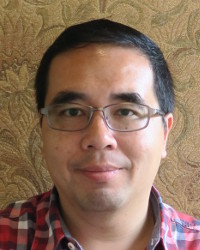
Topic: Peripheral Yue Dialects
Bit-Chee Kwok is currently an Associate Professor at the Department of Chinese Language and Literature of the Chinese University of Hong Kong. He also serves as Director of Research Centre for Cantonese at the same University, and Vice President of the Linguistic Society of Hong Kong. His research interests include Chinese dialectology, Classical Chinese, historical linguistics and language contact. He is the author of two books, and more than 60 papers published in various journals such as Language and Linguistics, Journal of Chinese Linguistics, Cahiers de Linguistique Asie Orientale and Bulletin of the School of Oriental and African Studies.
Synopsis: Peripheral Yue Dialects
In this lecture, we will discuss some peculiar grammatical features in the Yue dialects peripheral to the Pearl River Delta areas such as those spoken in Lianjiang of western Guangdong and Nanning of Guangxi. These features include, but not limited to: (1) reduplication; (2) diminution; (3) ideophonic suffixes which show sound symbolism; and (4) the predomination of the uncommon [V-O-R] (‘verb-object-resultative’) word order. The formation and development of these features will be explored from a comparative perspective. Specifically, the contact between the early speakers of these peripheral Yue dialects and speakers of other languages such as Zhuang will be considered.
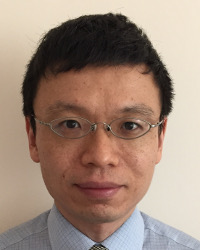
Topic: Online Resources for Cantonese Studies
John Lee is now an Assistant Professor at the Department of Linguistics and Translation at City University of Hong Kong. He obtained his PhD in Computer Science at the Massachusetts Institute of Technology. His research focuses on natural language processing, digital humanities, and computer-assisted language learning. He has led a number of research projects funded by the Innovation and Technology Fund, the Language Fund from Standing Committee on Language Education and Research, and the Early Career Scheme from the University Grants Committee. His recent projects include corpus-based language learning for Cantonese, Cantonese-Mandarin parallel treebank development, and Cantonese-Mandarin machine translation.
Synopsis: Online Resources for Cantonese Studies
This session aims at introducing to participants methods and resources for processing Cantonese texts. In the first part, we will introduce several Cantonese corpora and examine how the data of these corpora was collected and processed. We will then discuss how these corpora can be used for linguistic research and teaching and learning of Cantonese.
The second part of the session introduces a dependency treebank of Cantonese and discusses its potential in facilitating quantitative analysis on Cantonese as well as contrastive syntactic analysis. Following an overview of the Universal Dependencies framework, we present annotation guidelines for Cantonese and the construction process of the treebank. We then examine two studies based on this treebank, with the first focusing on Cantonese lexical usage, and the second on comparative syntax between Cantonese and Mandarin. Finally, we outline development plans for the treebank and a number of open research questions. The treebank is publicly accessible on the Universal Dependencies website (https://universaldependencies.org).
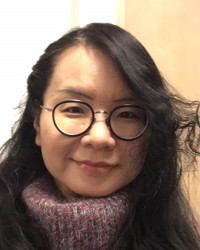
Topic: Cantonese Writing and Literature
Li Yuen Mei Fanny is now an Assistant Professor at the Department of Literature and Cultural Studies at The Education University of Hong Kong. She is the author of Written Cantonese in Late Qing and Early Republic (2017, Revised edition, Joint Publishing HK).
Synopsis: Cantonese Writing and Literature
This presentation will make six main points:
- Cantonese has appeared in written texts for many centuries.
- Its use in written texts is not random; rather, it follows patterns shaped by the text’s genre.
- Use of Cantonese in texts is generally an intentional choice by writers.
- Use of Cantonese in texts is generally an “act of identity.”
- In other parts of China, regional varieties of Chinese have also often been used in texts.
- Within the broader Chinese context, the history of written Cantonese is also special and unique.
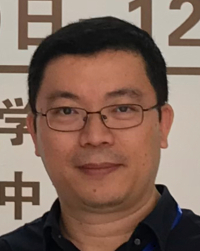
Topic: Peripheral Yue Dialects
Lin Huayong, born in Liangjiang, Guangdong Province, received his PhD from Sun Yat-sen University. He is now a professor at the Department of Chinese Language and Literature at Sun Yat-sen University. His publications include a book on the grammar of the Liangjiang Yue dialect (Liangjiang Yueyu Yufa Yanjiu, Peking University Press, 2014), and a series of papers on the grammar of the Yue dialects, such as The Cantonese Disposal Construction with Keoi(佢): Evidence From the Lianjiang Dialect (Zhongguo Yuwen, no.1, 2019). Professor Lin's research interests lie primarily in the description, grammaticalization and contact of Cantonese grammar.
Synopsis: Peripheral Yue Dialects
In this lecture, we will discuss some peculiar grammatical features in the Yue dialects peripheral to the Pearl River Delta areas such as those spoken in Lianjiang of western Guangdong and Nanning of Guangxi. These features include, but not limited to: (1) reduplication; (2) diminution; (3) ideophonic suffixes which show sound symbolism; and (4) the predomination of the uncommon [V-O-R] (‘verb-object-resultative’) word order. The formation and development of these features will be explored from a comparative perspective. Specifically, the contact between the early speakers of these peripheral Yue dialects and speakers of other languages such as Zhuang will be considered.
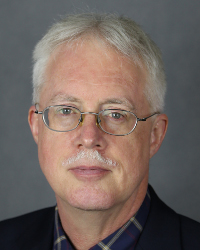
Topic: Cantonese Writing and Literature
Don Snow (PhD in East Asian Languages and Cultures, Indiana University) has taught language, culture, and linguistics for over two decades in various parts of China, as well as in the United States, and he is currently Director of Language and Culture Center at Duke Kunshan University. His research interests and academic articles focus on sociolinguistic topics such as diglossia and the historical development of written forms of Chinese vernaculars, and Cantonese as Written Language: The Growth of a Written Chinese Vernacular was published by Hong Kong University Press in 2004.
Synopsis: Cantonese Writing and Literature
This presentation will make six main points:
- Cantonese has appeared in written texts for many centuries.
- Its use in written texts is not random; rather, it follows patterns shaped by the text’s genre.
- Use of Cantonese in texts is generally an intentional choice by writers.
- Use of Cantonese in texts is generally an “act of identity.”
- In other parts of China, regional varieties of Chinese have also often been used in texts.
- Within the broader Chinese context, the history of written Cantonese is also special and unique.
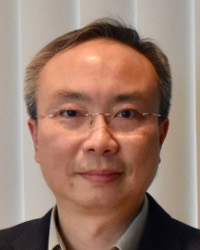
Topic: Cantonese Grammar
Sze-Wing Tang is Professor and Chairman of the Department of Chinese Language and Literature at The Chinese University of Hong Kong (CUHK) and concurrently serving as Director of the T.T. Ng Chinese Language Research Centre of the Institute of Chinese Studies, CUHK. He received his BA and MPhil from CUHK and PhD from the University of California, Irvine. His research interests lie primarily in Chinese syntax, theoretical approaches to the study of Chinese dialects, and comparative grammar.
Synopsis: Some Aspects of Cantonese Grammar
Despite the general perception of close grammatical similarities among the Chinese dialects, there are significant differences that are vital to our understanding of Chinese. Setting the dialects apart are generally functional elements. There are some distinctive grammatical features in Cantonese that cannot be found in Mandarin, including the attributive modifier marker, definite classifier phrases, and the double object construction. Cantonese is particularly rich in postverbal elements in comparison to Mandarin, including the sentence-final particles SFPs. A formal syntactic analysis of SFPs under a cartographic approach should be an interesting direction to pursue in the study of Cantonese grammar.
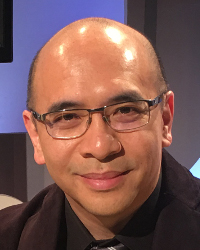
Topic: Cantonese Worlds
Clement Tong Tsz Ming is a visiting assistant professor of the Department of Asian Studies at the University of British Columbia (UBC), and an assistant professor in biblical studies at Carey Theological College. Clement has been involved in several Cantonese- and Hong Kong-themed projects on which he has written and presented, including the recent launching of the History of Cantonese Worlds course at UBC, an intriguing and insightful look at the making of "Cantonese" people and culture.
Synopsis: Cantonese Worlds
This session traces the evolution and transformation of the multi-faceted concept known as the “Cantonese worlds”, both in the context of the maritime cities of Macau, Guangzhou and Hong Kong, and that of the Cantonese diaspora. The goal is to help participants understand the worlds forged by those who have come to be identified as “Cantonese” or associated with a “Cantonese” heritage, and how such worlds have intersected or overlapped with other political, commercial, and cultural realms. The session traces the construction of “Cantonese” as a category and identity, and examines how Cantonese languages, cultures, and practices both challenge and broaden our understanding of “Chinese-ness.”
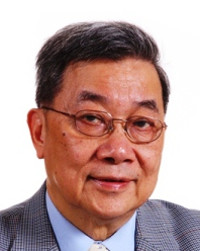
Topic: Sociolinguistic Aspects of Cantonese
Benjamin T'sou is Emeritus Chair Professor (CityUHK), Adjunct Professor (HKUST) and member of Académie Royale des Sciences d’Outre-Mer (Belgium). He and his team developed the Cantonese Oral Language Standardized Assessment Tool for the Department of Health of Hong Kong. Since 1995, his team has been cultivating the Cross-language Linguistic Variations in Chinese Corpus, LIVAC (https://en.wikipedia.org/wiki/LIVAC_Synchronous_Corpus).
His publications include: Chinese Language and Chinese Society, Anthology on Language Contact, A Textbook on Sociolinguistics, Quantitative and Computational Studies on the Chinese Language, Linguistic Corpus and Corpus Linguistics in the Chinese Context, Quadra-syllabic Idiomatic Expressions in Cantonese: Inheritance and Innovation. The Language of Atlas of China, of which he is an editor and contributor, was awarded a Class 1 prize in research by the Chinese Academy of Social Sciences in 1998.
Synopsis: A thumbnail sketch of the sociolinguistic history of Cantonese
Cantonese is among the 25 most commonly spoken languages in the world and is an integral part of the Chinese diaspora. Of all the Chinese dialects, Cantonese arguably stands out most because of some manifested salient differences when it is compared with the others.This situation has invited questions on the phylogeny and development of Cantonese within the Sino-Tibetan language family, and also on broader issues relating to the cultural history and social structure of its speakers over time, as well as on areal linguistics and linguistic typology. We shall selectively draw on examples of salient variations in a number of areas [see below] to explore such questions and issues, especially in light of the relevant sociolinguistic landscape, involving bilingualism, diglossia, and social stratification; language and other contacts, demography and ethnicity, toponymy and local petroglyphs, for example,
- phonological structure : consonants, vowels, syllabicity, homonymy, tones and uncommon tonal variations,
- word formation : basic and cultural vocabulary, idioms, sound symbolism, slangs and lexical substrata
- grammar : simple and loaded questions, negation and denial, profanity and modification, verbal argument structure
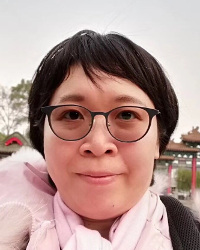
Topic: Sound System of Cantonese
Zhang Ling is an Assistant Professor at the Department of Chinese Language Studies at the Education University of Hong Kong. She received her B.A. degree from Beijing Normal University, M.A. degree from Sun Yat-sen University, and Ph.D. degree from the Hong Kong Polytechnic University. Zhang Ling's research interest has been focused on Cantonese phonetics and phonology, especially acoustic analysis. She published a monograph entitled Intonation Effects on Cantonese Lexical Tones in Speaking and Singing by Lincom Academic Publishers (Germany) in 2016. Zhang Ling has been interested in interdisciplinary studies related to phonetics recently, including prosodic grammar, applied phonetic studies in Chinese language education, child language development, and aphasia, etc.
Synopsis: Sound System of Cantonese
This lecture will provide an overall description of the sound system of Cantonese, including consonants, vowels, tones, and intonation. A brief introduction of research methods for studying sound system of Cantonese will also be provided, especially acoustic analysis. We will focus on the diphthongs of Cantonese, as well as tone and intonation studies of Cantonese. At the end of the lecture, the most updated interdisciplinary studies related to Cantonese sound system will also be introduced.
Application
Date of the School
The School runs from 27 – 31 May 2019 (Monday to Friday). There are two sessions (morning and afternoon) in each day.
Eligibility
The School is open to those who are interested in Cantonese studies. Participants are expected to have some basic knowledge in linguistics (such as having taken courses like Introduction to Linguistics, 語言學導論, 現代漢語, or similar courses). The working language of the School is English, supplemented by Putonghua and Cantonese. Participants are also expected to have reading knowledge of Chinese.
School Fee
- Early-bird application (from now to 31 March 2019): HK$350
- Regular application (1 April – 15 May 2019): HK$500
* The school fee does not include meals and accommodation.
* Regular application is subject to the availability of seats.
Scholarships of the School
A total of 10 scholarships, 5 for local applicants and 5 for non-local applicants (i.e. outside of Hong Kong), will be offered. Recipients of the scholarships will be waived for the school fee. Only applicants who apply before 20 March 2019 will be considered. The statement of purpose in the application form will be assessed by the Organizing Committee for the scholarships. Applicants who are awarded the scholarships will be notified by the School. The scholarships will be decided by the Organizing Committee of the School and the result shall be final.
Certificate
Participants with full attendance at the School will receive a certificate of completion.
Application Process
Location
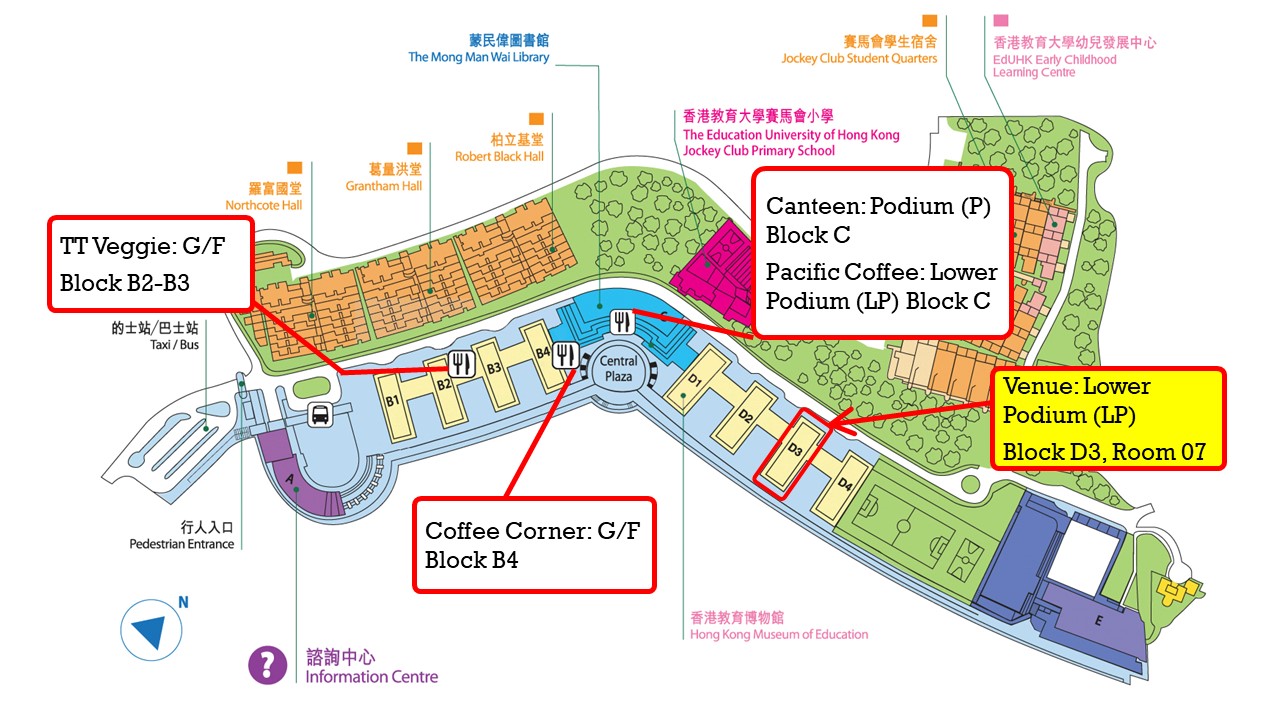
Poster
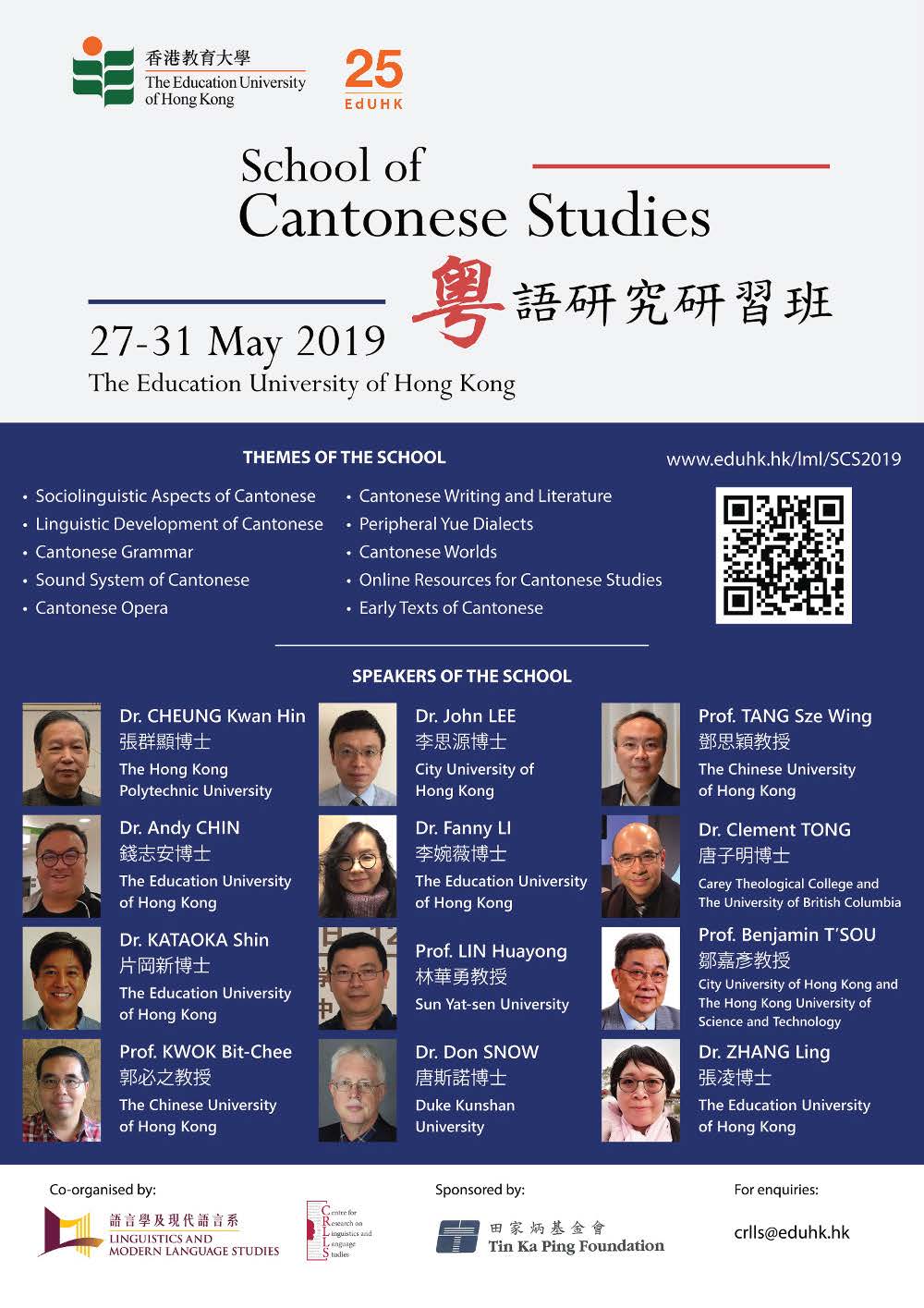
Contact Us
Enquiries
For any enquiries, please send us an email at: crlls@eduhk.hk
Organizing Committee of The School of Cantonese Studies
Hintat Cheung
Department of Linguistics & Modern Language Studies, Centre for Research on Linguistics and Language Studies
The Education University of Hong Kong
Jackie Lee
Department of Linguistics & Modern Language Studies, Centre for Research on Linguistics and Language Studies
The Education University of Hong Kong
Andy Chin
Department of Linguistics & Modern Language Studies, Centre for Research on Linguistics and Language Studies
The Education University of Hong Kong
Shin Kataoka
Department of Linguistics & Modern Language Studies, Centre for Research on Linguistics and Language Studies
The Education University of Hong Kong
Fanny Li
Department of Literature and Cultural Studies, Centre for Research on Linguistics and Language Studies
The Education University of Hong Kong
Alistair Tweed
Centre for Research on Linguistics and Language Studies
The Education University of Hong Kong
Cherry Yeung
Department of Linguistics & Modern Language Studies
The Education University of Hong Kong
School of Cantonese Studies 2019. Last updated on Friday, 22 February 2019.
